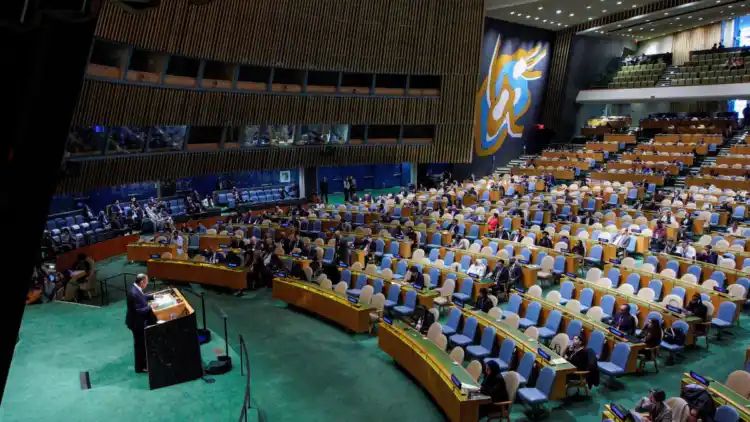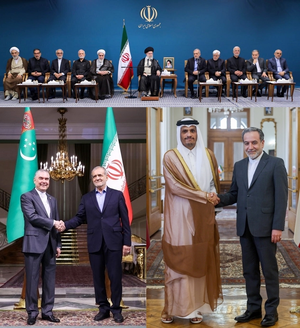UN General Assembly to discuss AI’s benefits and hazards, calls for international standards

The United Nations General Assembly is set to discuss artificial intelligence (AI) Thursday, focusing on a resolution that outlines the technology’s benefits and drawbacks while advocating for the creation of global standards.
The resolution, endorsed by numerous countries, underscores the importance of establishing guidelines to ensure AI systems are safe, secure, and reliable, explicitly excluding military applications from its scope.
Primarily, the resolution highlights AI’s positive potential and stresses the importance of addressing the digital divide between and within nations.
Initiated by the United States, this pioneering resolution aims for approval this week. It encourages the promotion of digital transformation and equitable AI access to support the UN’s Sustainable Development Goals, aiming for a more prosperous future by 2030.
U.S. Ambassador to the UN, Linda Thomas-Greenfield, shared a joint statement emphasising the critical need for collective action by member states in response to the rapid advancement of AI technologies.
According to Richard Gowan, an analyst at the International Crisis Group, “the emphasis on development is a deliberate effort by the US to win goodwill among poorer nations.”
“It is easier to talk about how AI can help developing countries progress rather than tackle security and safety topics head-on as a first initiative,” he said.
– ‘Male-dominated algorithms’ –
The draft text does highlight the technology’s threats when misused with the intent to cause harm, and also recognizes that without guarantees, AI risks eroding human rights, reinforcing prejudices and endangering personal data protection.
It therefore asks member states and stakeholders “to refrain from or cease the use of artificial intelligence systems that are impossible to operate in compliance with international human rights law or that pose undue risks to the enjoyment of human rights.”
Warnings against the technology have become increasingly prevalent, particularly when it comes to generative AI tools and the risks they pose for democracy and society, particularly via fake images and speech shared in a bid to interfere in elections.
UN Secretary-General Antonio Guterres has made AI regulation a priority, calling for the creation of a UN entity modelled on other UN organizations such as the International Atomic Energy Agency (IAEA).
He has regularly highlighted the potential for disinformation and last week warned of bias in technologies designed mainly by men, which can result in algorithms that ignore the rights and needs of women.
“Male-dominated algorithms could literally program inequalities into activities from urban planning to credit ratings to medical imaging for years to come,” he said.
Gowan of the International Crisis Group said he didn’t “think the US wants Guterres leading this conversation, because it is so sensitive” and was therefore “stepping in to shape the debate.”
A race is underway between various UN member states, the United States, China and South Korea, to be at the forefront of the issue.
In October, the White House unveiled rules intended to ensure that the United States leads the way in AI regulation, with President Joe Biden insisting on the need to govern the technology.





